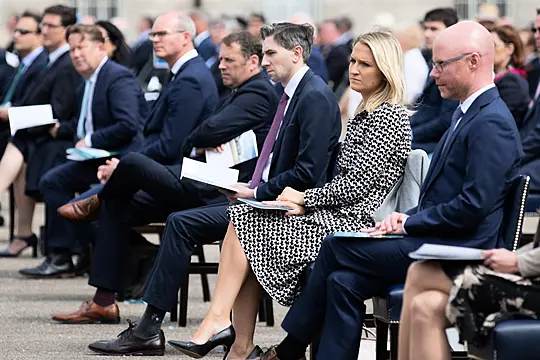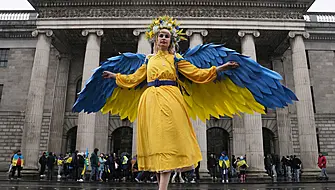Ireland's Covid-19 vaccine roll-out strategy has been approved by Cabinet today, giving priority to people over 65 living in long-term residential care facilities, people over 70 and frontline workers in direct contact with patients.
Minister for Health Stephen Donnelly has also confirmed the vaccine will be available free of charge for everyone in the country to ensure equal access to the jab.
The country's Covid-19 Vaccine Allocation Strategy has been based on recommendations from the Department of Health and the National Immunisation Advisory Committee (NIAC).
The National Public Health Emergency Team (Nphet) approved the strategy last Thursday.
With a plan for the vaccine's roll-out now in place, Ireland must wait for the European Medicines Agency (EMA) to give the green light to the two candidates currently being assessed; Pfizer/BioNTech and Moderna.
The EMA is expected to make their decision before the end of the year, but Taoiseach Micheál Martin said if the Agency approves the vaccine at an earlier stage, Ireland will be ready.
Vaccine allocation groups
The Government has released a detailed document identifying the groups which will receive priority access to the vaccine and the reasoning behind each group being included in the list.
According to the document, the first 10 groups, in order, are:
- People aged 65 and over, resident in a long-term care facility.
- Frontline healthcare workers in direct contact with patients.
- People aged 70 and older, vaccinated in order from 80 to 84, 75 to 79, and then 70 to 74.
- Other healthcare workers not in direct patient contact.
- People aged between 65 and 69, prioritising those with medical conditions putting them at risk of severe disease.
- Key workers (to be further defined).
- People aged between 18 and 64 with medical conditions putting them at risk of severe disease.
- People aged between 18 and 64, resident in a long-term care facility.
- People aged between 18 and 64 living or working in crowded accommodation where self-isolation and social distancing is difficult to maintain.
- Key workers in essential jobs who cannot avoid exposure to Covid-19, including food supply workers, public and commercial transport operators, etc.
The reasons given for the inclusion of these groups include greater risk of developing severe illness, requiring hospitalisation, or dying due to Covid-19, higher risk of exposure or transmission of the virus, or the need to supply essential services.
First vaccination
The first person on the island of Ireland received the vaccine in Northern Ireland this morning following the UK's speedy approval of the Pfizer/BioNTech jab.
Joanna Sloan, who is the nurse in charge of Covid vaccination for the Belfast Health and Social Care Trust said she felt "privileged and honoured" to be the first person in the North to be vaccinated.
The Irish strategy indicates the intention to vaccinate all care home residents and staff on-site after the UK faced issues regarding the provision of the vaccines in care homes due to issues in the storage and supply of the doses.
These issues in the UK meant that although older people in care facilities were identified as the most at risk, they will not be the first to be vaccinated.
The safety and effectiveness of vaccines is our absolute priority.
Mr Donnelly said the vaccine news was a "beacon of hope after a difficult year".
“Vaccination is a hugely effective intervention for saving lives and promoting good health," he said.
"Of course, the safety and effectiveness of vaccines is our absolute priority and any Covid-19 vaccine administered in Ireland will have to be authorised by the European Medicines Agency.
"While we await news on whether these vaccines comply with all of the EMA’s requirements of quality, safety and efficacy, the Government has been working ahead on plans for the roll-out of vaccines.
“A key part of the roll-out will be ensuring that those most vulnerable to Covid-19 receive vaccinations first.
"Given the country’s experience with Covid-19 to date and the risks that vulnerable people and those in frontline roles in the health and social care services continue to face, it is only right that they are prioritised in the allocation of vaccines," Mr Donnelly added.







